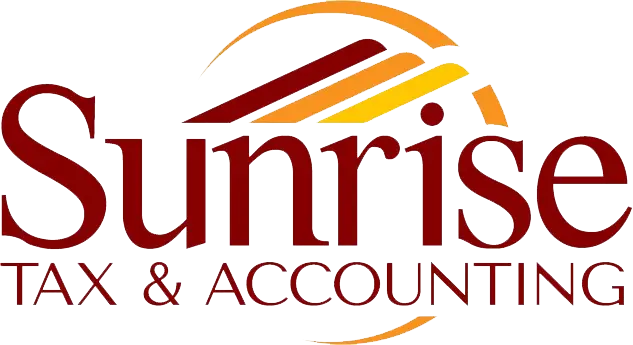
Retirement planning is a crucial component of financial management, particularly for small business owners who often face unique challenges in balancing personal savings with business needs. In this comprehensive guide, we’ll explore the importance of retirement planning for small business owners and provide practical strategies to maximize retirement savings while effectively managing business obligations.
Importance of Retirement Planning for Small Business Owners
Retirement planning plays a pivotal role in ensuring financial security in retirement, allowing small business owners to maintain their standard of living and enjoy a comfortable lifestyle.
However, a small business entity often encounters obstacles such as irregular income, lack of employer-sponsored retirement plans for small businesses, and the need to balance business reinvestment with personal savings. Despite these challenges, proactive retirement planning offers long-term benefits, including tax advantages, wealth accumulation, and peace of mind.
Assessing Your Current Financial Situation
Before embarking on a retirement planning journey, small business owners must conduct a thorough assessment of their current financial situation. This involves evaluating personal and business finances, including income, expenses, assets, and liabilities.
By estimating future retirement expenses and assessing existing retirement savings and investments, a small business entity can identify potential gaps in retirement savings and areas for improvement.
Choosing the Right Retirement Accounts and Investment Options
Small business owners have a variety of retirement account options to choose from, including Individual Retirement Accounts (IRAs), Solo 401(k)s, SEP-IRAs, and SIMPLE IRAs.
Understanding IRA vs 401K – IRAs (Individual Retirement Accounts) and 401(k)s are both retirement savings vehicles with distinct features. While IRAs offer individual control and flexibility in investment choices, 401(k)s are employer-sponsored plans that often include employer matching contributions, making them a popular choice for retirement savings among employees.
Each option offers unique features, contribution limits, and tax advantages, allowing small business owners to select the most suitable retirement account based on their individual needs and preferences.
Additionally, exploring investment strategies within retirement accounts, such as asset allocation and diversification, can help optimize long-term returns and mitigate risk.
Implementing Tax-Efficient Retirement Planning Strategies
Tax efficiency is a critical aspect of knowing how to save for retirement for small business owners, as it can significantly impact overall retirement savings. By leveraging tax-deferred and tax-advantaged retirement accounts, small business owners can minimize current tax liabilities and maximize long-term savings.
Furthermore, implementing tax planning strategies, such as maximizing deductible contributions and managing taxable income in retirement, can further optimize tax efficiency and enhance retirement outcomes.
Incorporating Business Succession Planning into Retirement Strategy
Business succession planning is an essential consideration for small business owners, particularly as they approach retirement age. Developing a comprehensive succession plan ensures a smooth transition of ownership and management upon retirement, safeguarding the future viability of the business entity.
By exploring options for transferring ownership and aligning business succession planning with retirement goals, small business owners can effectively manage both personal and business obligations.
Creating a Long-Term Retirement Savings and Investment Plan
Setting specific retirement savings goals and developing a systematic savings and investment plan are key steps in achieving financial security in retirement. While you think of how to save for retirement – Small business owners should consider factors such as desired retirement lifestyle, anticipated expenses, and retirement age when creating their retirement plan.
Periodic monitoring and adjustment of the retirement plan are essential to reflect changes in personal circumstances, market conditions, and retirement objectives.
Planning for Healthcare Costs in Retirement
One critical aspect of retirement planning that small business owners should not overlook is healthcare expenses. Healthcare costs can constitute a significant portion of retirement expenses, especially as individuals age.
A small business entity should explore options for health insurance coverage, long-term care insurance, and healthcare savings accounts to prepare for potential medical expenses in retirement. By factoring healthcare costs into their retirement plan, small business owners can better ensure financial stability and peace of mind during their retirement years.
Seeking Professional Guidance and Financial Advice
Navigating the complexities of how to save for retirement can be overwhelming for a small business entity, which is why seeking professional guidance and financial advice is highly recommended.
Working with qualified professionals, such as financial advisors, tax consultants, and retirement planning experts, can provide valuable insights and personalized recommendations tailored to individual circumstances. By leveraging the expertise of professionals, small business owners can make informed decisions and optimize their retirement outcomes.
Conclusion
Retirement planning is a multifaceted process that requires careful consideration, proactive decision-making, and disciplined execution, especially for small business owners. By understanding the importance of retirement planning, and other key factors small business entity can effectively maximize their retirement savings and achieve financial security in retirement. Start planning for your retirement today to ensure a brighter tomorrow for you and your business entity.
Are you ready to develop a customized retirement plan for your small business but aren’t sure where to start? Call our office at +1 (816) 456-4324 or email darlis@sunrisetaxaccounting.com to schedule a complimentary initial consultation. One of our financial advisors will review your unique situation and business goals to recommend the best path forward. Don’t wait – contact us today to ensure your business can thrive long after your retirement.
FAQs
What are the benefits of incorporating a Roth IRA into my retirement savings strategy?
A Roth IRA offers tax-free growth and withdrawals in retirement, making it an attractive option for those who anticipate being in a higher tax bracket in retirement or want to diversify their tax exposure. Additionally, Roth IRAs have no required minimum distributions (RMDs) during the account owner’s lifetime, providing greater flexibility in managing retirement income.
How can small business owners balance reinvesting profits into their business with saving for retirement?
Small business owners can strike a balance by setting aside a portion of profits for retirement savings while reinvesting the remaining funds back into the business. Implementing a disciplined approach to saving, such as setting specific retirement savings goals and automating contributions, can help ensure consistent retirement savings without hindering business growth.
Are there any specific retirement planning considerations for small businesses with multiple owners or partners?
Yes, multi-owner or partnership businesses may need to address issues related to succession planning, including buy-sell agreements, cross-purchase agreements, or entity purchase agreements, to ensure a smooth transition of ownership and management in the event of retirement or other unforeseen circumstances. It’s essential for all parties involved to communicate openly and have a clear understanding of the business’s future plans and obligations.
